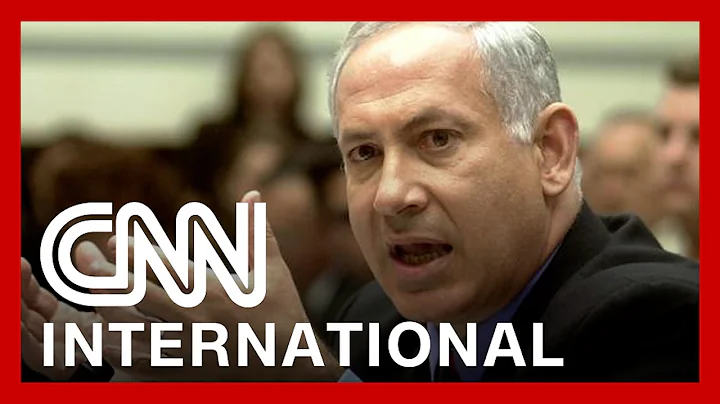Reporter Zhao Enting
Israel’s eight-party coalition, which has been in power for just one year, is now on the edge of a cliff. Israeli Prime Minister Bennett and the Prime Minister-designate and Foreign Minister Lapid announced after their meeting that they would submit a motion to dissolve parliament and call an early election. After the third reading of the parliament, the current parliament will be dissolved. It is expected that the new parliamentary election may be held around October 25. During this period, Lapid will serve as caretaker prime minister.

Bennett (left) and Lapid
This scene had been foreshadowed as early as a year ago when the coalition government was formed. In March last year, Israel held its fourth parliamentary election since April 2019. The Israeli Knesset implements a unicameral system with a total of 120 seats. The right-wing Likud party led by Prime Minister Netanyahu, who had been in power for 12 years, won 30 seats, and the centrist Future Party led by former Finance Minister Lapid won 17 seats. The centrist Blue and White party led by Chief of General Staff Gantz won 8 seats, the United Right Alliance led by former Defense Minister Bennett won 7 seats, and the United Arab Party won 4 seats.
The Netanyahu camp led by the Likud Group occupies a total of 52 seats, and the anti-Netanyahu camp composed of the Future Party and the Blue and White Party controls 57 seats. Neither of them has reached the threshold for forming a government. Later, Netanyahu, who was first granted the right to form a cabinet, failed to form a cabinet within the specified time limit. After Lapid obtained the right to form a cabinet, the "kingmaker" appeared - Bennett, the leader of the United Right Alliance, announced that he would cooperate with Lapid.
Next, Bennett and Lapid reached an agreement with the leaders of six other political parties to form the first grand coalition government in Israeli history covering left, center, right and Arab parties in June last year. Bennett and Lapid took turns as prime minister. These eight political parties are the right-wing parties United Right Alliance, Israel Home Party and New Hope Party, the left-wing parties Labor Party and Vitality Party, the centrist parties Future Party and Blue and White Party, and the Arab party Ra'am Party, spanning the entire political spectrum , the level of complexity is unprecedented.

Because of this, this ruling coalition must be very fragile. First, these eight political parties have different policy opinions, and the only thing that brings them together is anti-Netanyahu. Once their goals are achieved, their conflicts will reappear and amplify; second, because Arab parties have entered the political arena for the first time government, which has made the tightening Palestinian-Israeli situation in recent years a variable affecting Israel's internal affairs; thirdly, the eight political parties together only occupy 61 seats in the Knesset, just over half, and the opposition camp headed by the Likud Group has formed a strong resistance.
Recently, problems have exploded. In April this year, the whip Silman of the United Right Alliance quit the party citing differences in ideas. According to Israeli media reports, as an Orthodox Jew, Silman had a conflict with the secular Health Minister Horowitz, who is the leader of the Vitality Party that forms the ruling coalition.
html In June, on the first anniversary of the formation of the ruling coalition, Bennett's long-term ally, Congressman Auerbach, announced his withdrawal from the ruling coalition. Silman's withdrawal left the eight-party coalition with only 60 seats in parliament, pushing it to the edge of the cliff. Auerbach's withdrawal became the "last straw" that crushed the eight-party alliance. It only occupied 59 seats in the parliament and became a minority. The opposition camp launched multiple no-confidence motions.At the same time, as a close associate of Bennett, the government's Minister of Religious Affairs Kahana made controversial remarks involving Arabs on the issue of Jewish settlements in the West Bank. In addition, the recent tension between Palestine and Israel has led to the Ram Party threatening to withdraw. ruling coalition.

On April 15, Israeli police clashed with Palestinians at the Al-Aqsa Mosque in the Old City of Jerusalem. ( Xinhua News Agency )
What prompted Bennett and Lapid to decide to dissolve parliament and call an early election was the vote on a bill aimed at extending the effectiveness of laws related to Jewish settlements in the West Bank. The validity period of relevant laws has been extended every five years since 1967, and it has almost become a routine for previous bills to be approved by parliament. However, this year the bill was rejected by the parliament. In addition to the Ramu Party's vote against it, right-wing camps such as the Likud Group, which had always supported the bill, also voted against it, just to attack the ruling coalition.The fragility of the
8 party's ruling coalition was fully exposed, and Bennett, the original "kingmaker", had to step down sadly. It is said that he will temporarily leave politics, and Kahana will lead the United Right Alliance to compete in the next parliamentary election. Next, it's Rapid's time. Although his status as caretaker prime minister is somewhat embarrassing, it is a major advantage for Lapid before the parliamentary elections.
Next month, he will meet with visiting US President Biden , which will give Lapid points before the election. In addition, the support rate of the Future Party led by him is second only to the Likud Group, indicating that the centrist line still has a market among voters. Of course, Lapid will also face off against Likud leader Netanyahu, who has never left the spotlight of Israeli politics despite being out of power for a year.

Netanyahu
After the two parliamentary elections in April and September 2019, he failed to successfully form a cabinet. After the parliamentary election in March 2020, the Likud Group and the Blue and White Party formed a joint alliance, but it only lasted for half a year. In the parliamentary election last March, as many as 38 political parties and party alliances participated in the election. In the end, 13 won seats and 8 parties formed the ruling coalition.
The Israeli political arena is already full of small and medium-sized parties. Since the founding of the country in 1948, there has never been a situation where a single party formed a government. However, the current situation of political fragmentation is unprecedented, which means that after the next election, we will still encounter difficulties in forming a cabinet and forming alliances.
Although Netanyahu has a chance to make a comeback, there are still doubts about whether he can return to power amid corruption investigations and voter fatigue. Whether it is Netanyahu, Lapid, or others, if Israel’s current political operation model and structure do not make significant changes, the curse will continue.





















